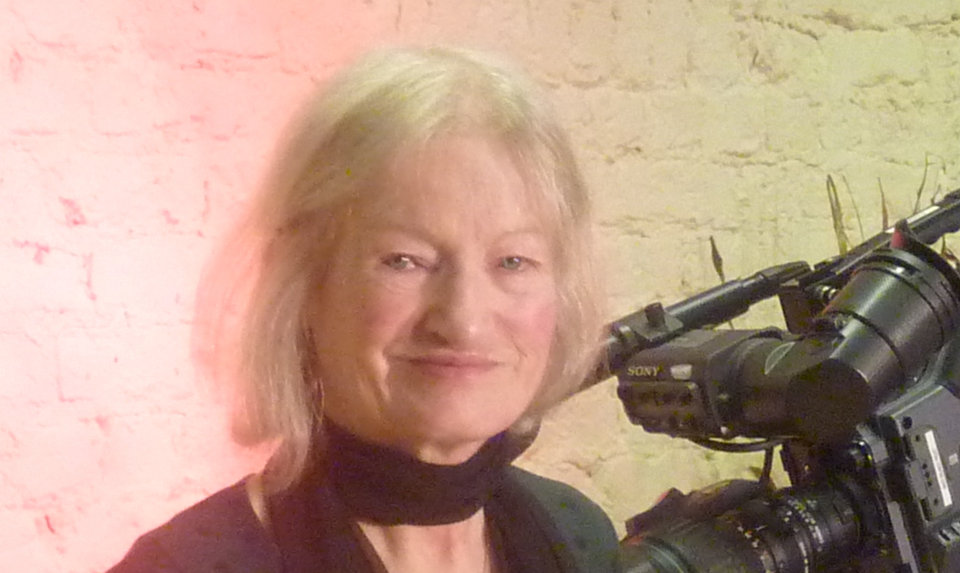Growing up in post WWII Canada, Ruth left home at an early age: “I left home at a very early age following the hippy trail. I was very interested in music and it was exciting at the time. I quickly got involved with the Anti-Vietnam War Movement.”
After travelling across Canada, America and Europe, Ruth decided to move to Belfast. “I had a real interest in places where there was a national conflict.”
Recollecting her first memories of arriving in Northern Ireland Ruth says, “How grey and poor everything seemed to be. It was highly militarised of course, so everything was very tense. Everything seemed to be in buildings that were falling apart… Belfast seemed to me to be very grim.”
Ruth’s involvement with women’s rights and social work in Belfast began in the 1990s. “I started doing research for the women’s sector and got involved with the mainstream feminist movement here.”
Of the campaigns, which she had actively been a part of, Ruth feels that the campaign for women prisoners in Armagh Prison proved a significant one. “It was the critical issue at the time. All the campaigning around not just women prisoners but all prisoners was a kind of the dividing line. I think it was important for anybody who felt social justice was the burning issue that you had to take a stand on.”
“Women developed a sense of themselves as people who were not just in the private sphere, it wasn’t just traditional homemakers, women were actually playing their part as citizens and had a different sense of themselves. I think that was very important in shaping the community based women’s movement in the late 1980’s and 1990’s.”
Ruth discusses issues pertaining to women’s reproductive rights, “Those are the issues that are still as controversial as they were thirty years ago and it really is to do with women’s rights to be autonomous people as it has to do with sexuality. The older I get, the more angry I become about it. I do think that women are always the first to feel the brunt of the fundamentalist backlash and it’s political, it’s not about religion, it’s about control.”
Regarding her work in Belfast during the Troubles, sectarianism proved to be a difficult obstacle for Ruth, “I think it divided a lot of women, it made it difficult sometimes for solidarity. During the mid to late 1980’s there were some very important developments where women did come together and make alliances over the sectarian divide but that was quite fragile. There were times for instances over the Holy Cross dispute where the children’s organisations could take a stand and recognise that children’s rights were being violated. After all the years of work that had been done in terms of women coming together in terms of women’s issues, they couldn’t agree on the Holy Cross issue and it was very divisive at the time and also very embarrassing.”
Ruth has a passion for women’s history. Her time spent with the University of Ulster as both a postgraduate and voluntary researcher led to the development of the Mary Ann McCracken Historical Society in March 1992.
“We organised lots of lectures around women’s history and it was fascinating to see how many people were enthusiastic. It was really fun and exciting and I suppose it also took the pressure off. You weren’t just campaigning against things and protesting.”
During the late 1980s public funding for women’s centres across Northern Ireland was being cut by both the Belfast City Council and Castlereagh Borough Council. With such important community resources under threat Ruth supported the campaign for more funding.
“It was the first time that women had lobbied Stormont politicians instead of the Councils. I think we did accomplish quite a lot by articulating what the contribution was, not just for women but for all working class communities, how social and economically valuable it was.”
Aside from the research for public agendas and social documents, Ruth has also written about women’s history. “For me it’s more creative. I think that some of the work that I’ve done is quite useful because it allows other people to think and share. So I think it’s useful as it gives people a sense of their own identity.”
Of all the campaigns and community activities, Ruth signals out the Belfast Agreement for special mention. “I suppose in the 1990s when we were coming up to the Agreement, when it seemed that quite a lot was possible … and to be fair so much has changed since then, things have moved on. In retrospect it was a time when you did think you were on the verge of something different. I suppose for all of the criticisms one could make of the Agreement and where we’ve come since then, it was a milestone.”
Ruth believes it was important to “clear the ground for the people who come after and for the people who have been excluded. I think that if you don’t keep fighting for your space, it gets taken away from you. I suppose it’s just creating a bit of space for people who aren’t in a position to speak for themselves or fight for themselves.”
Ruth recalls her book launch and the Women’s History Weekend as two good memories. “Those two things, which go back to your place in the line up of women who were fighting for better circumstances. Just seeing yourself as maybe one of those who then pass on the torch to other people who will take it somewhere different and further.”




